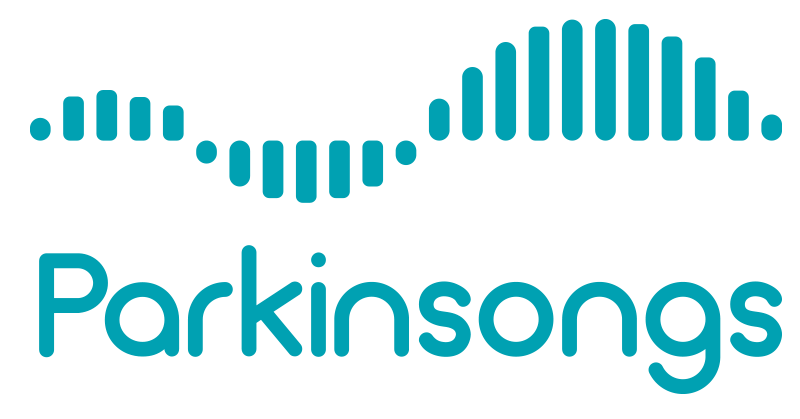Unlocking the Truth About Rainbow Six Siege Hacks and Cheats
Looking to elevate your Rainbow Six Siege experience? Our premium tools offer a competitive edge with seamless integration for a smoother, more dominant performance. Discover a new way to play and secure your victories today.
The Allure of Unfair Advantages in Competitive Gaming
The allure of an unfair advantage in competitive gaming is a potent temptation, rooted in the desire to bypass grueling practice for instant dominance. While true mastery requires countless hours of deliberate practice, the promise of a decisive edge through exploits or cheats can be intoxicating. This pursuit often prioritizes the outcome over the integrity of the skill-based competition itself, offering a hollow victory that undermines the very essence of fair play and the respect of the community.
Why Players Resort to Third-Party Software
The allure of unfair advantages in competitive gaming stems from the intense pressure to win, where players seek any edge to secure victory. This often manifests through exploits, unauthorized software, Rainbow Six Siege cheats or account sharing to gain an illicit upper hand. While tempting, these practices fundamentally undermine competitive integrity and fair play, creating an unbalanced experience. The pursuit of a competitive gaming advantage through such means risks severe penalties, including permanent bans, tarnishing both personal and team reputations within the esports community.
The Psychological Impact of Cheating on the Community
The pursuit of unfair advantages, often through exploits or cheats, remains a persistent dark pattern in competitive gaming. While the temptation for a quick win is understandable, this mindset fundamentally undermines the core principles of skill development and fair play. Relying on such crutches stunts genuine growth and ultimately hollows any victory. competitive gaming integrity is paramount for a thriving ecosystem. True mastery is forged in the fire of legitimate competition, not purchased from a cheat menu.
Commonly Encountered Exploits and Their Mechanics
Commonly encountered exploits include SQL injection, where attackers insert malicious code into input fields to manipulate databases, and cross-site scripting (XSS), which injects scripts into webpages viewed by other users. Buffer overflow attacks overwhelm a program’s memory allocation, allowing arbitrary code execution. Phishing remains prevalent, relying on social engineering to deceive users into revealing credentials. Understanding these cybersecurity vulnerabilities is crucial, as they often exploit unpatched software or flawed input validation mechanisms, highlighting the need for robust security practices like regular updates and sanitizing user input.
Wallhacks and ESP: Seeing Through the Battlefield
Commonly encountered cyber attacks leverage specific software flaws to compromise systems. A buffer overflow occurs when data exceeds a buffer’s boundary, overwriting memory to execute malicious code. SQL injection manipulates database queries through unfiltered user input to access or destroy sensitive information. Cross-site scripting (XSS) injects client-side scripts into trusted websites, hijacking user sessions. These common cybersecurity vulnerabilities highlight the critical need for secure coding practices and robust input validation to protect digital assets from exploitation.
Aimbots: The Illusion of Perfect Accuracy
Commonly encountered cybersecurity threats often exploit unpatched software and human error. Buffer overflows corrupt memory to execute arbitrary code, while SQL injection manipulates database queries through unfiltered user inputs. Cross-site scripting (XSS) injects malicious scripts into trusted websites, hijacking user sessions. Phishing employs deceptive communications to steal credentials. Mitigation requires a layered defense strategy, including rigorous input validation, regular patching, and comprehensive user training to reduce the attack surface effectively.
DDoS Attacks: Disrupting Matches for Gain
Commonly encountered exploits target software vulnerabilities to gain unauthorized access or control. A buffer overflow attack, for instance, overwhelms a program’s memory allocation, allowing malicious code execution. SQL injection manipulates database queries through insecure input fields to extract sensitive information. Cross-site scripting (XSS) injects client-side scripts into web pages viewed by other users. These cybersecurity threat mitigation strategies are essential for defending against such techniques, which often rely on unpatched software and improper input sanitization to succeed.
Consequences of Using Unauthorized Software
Installing unauthorized software often feels like a harmless shortcut, a quiet rebellion against corporate policy or licensing fees. However, this decision can unleash a cascade of severe consequences. A single unvetted program can introduce malicious software, compromising entire networks and leading to devastating data breaches. Beyond the immediate security risks, organizations face significant legal penalties for copyright infringement, including hefty fines and costly lawsuits. The initial convenience is quickly overshadowed by the monumental task of repairing damaged systems, restoring lost data, and rebuilding a fragile reputation with clients who entrusted their information to a compromised entity.
**Q: What’s the biggest risk for an individual?**
**A:** For an individual, the greatest risk is often identity theft or financial loss from malware hidden within the unauthorized software, silently harvesting personal data.
**Q: Can you get in trouble at work for this?**
**A:** Absolutely. Using unlicensed software at work is a serious violation that can lead to termination and even personal liability if the company is sued.
Permanent Account Bans and Hardware Restrictions
When a small marketing team installed unlicensed design software to cut costs, they triggered a catastrophic system failure. This single act of software piracy corrupted their entire network, halting operations for days. The financial repercussions were severe, far exceeding the price of legitimate licenses, and severely damaged their professional reputation. The hidden dangers of unlicensed software became a stark lesson in the critical importance of cybersecurity compliance for their entire industry.
The Financial Loss from Banned Game Licenses
Using unauthorized software exposes organizations to significant software compliance risks, including severe financial penalties from regulatory audits and costly litigation from copyright holders. Beyond legal repercussions, such software often lacks critical security patches, making systems vulnerable to malware, data breaches, and operational instability. This can lead to devastating data loss, reputational damage, and a complete loss of stakeholder trust.
Unlicensed applications are a primary vector for cyberattacks, compromising entire networks.
Ultimately, the perceived cost savings are vastly outweighed by the potential for catastrophic financial and operational consequences.
Damage to Personal Reputation and Social Standing
Using unauthorized software exposes organizations to significant legal, financial, and security risks. Companies face severe penalties, including hefty fines and lawsuits, for non-compliance with software licensing agreements. From a cybersecurity perspective, unlicensed applications often lack critical security patches, making them prime vectors for malware infections, data breaches, and operational disruptions. This negligence can lead to catastrophic data loss and irreversible reputational damage, eroding customer trust. A robust software asset management strategy is essential for mitigating these threats and ensuring full license compliance.
**Q: What is the biggest risk of using unlicensed software?**
**A:** The most significant risk is a major security breach, as unauthorized software often contains unpatched vulnerabilities exploited by cybercriminals to steal sensitive data.
How Developers Combat Unfair Play
Developers are constantly fighting unfair play with a mix of high-tech tools and smart design. They use advanced anti-cheat software that scans for unauthorized programs and analyzes player behavior for impossible stats. On top of that, robust reporting systems let the community flag suspicious activity, creating a huge network of watchful eyes. Regular patches quickly shut down newly discovered exploits, keeping the playing field level. It’s a never-ending battle, but these tactics are crucial for protecting the integrity of the game and ensuring everyone has a fair shot at fun.
The Role of BattleEye and Other Anti-Cheat Systems
Game developers combat unfair play through a sophisticated multi-layered security approach. This includes deploying advanced anti-cheat software that scans for unauthorized programs and employs heuristic analysis to detect anomalous player behavior. Robust server-side validation ensures client-side actions are legitimate, while data analytics identify statistical outliers. A dedicated team often manually reviews reports, leading to swift penalties for violators. This relentless pursuit of fair gaming environments is crucial for maintaining player trust and the competitive integrity of the online ecosystem.
Player Reporting Tools and Overwatch-Style Features
Developers combat unfair play through a multi-layered approach to game security measures. They deploy sophisticated anti-cheat software like kernel-level drivers that detect and ban unauthorized programs. Teams also analyze player reports and behavioral data to identify anomalies, issuing swift bans for offenses like boosting. Regular patches fix exploits, while encrypted servers protect game integrity, ensuring a fair experience for the entire community.
Continuous Updates to Patch Vulnerabilities
Game developers combat unfair play through a robust anti-cheat system that employs server-side authority and behavioral analytics. This proactive approach to game security involves constantly monitoring for statistical anomalies, such as impossible accuracy or movement speed, and automatically flagging suspicious accounts. By maintaining server-side authority over critical game state data, developers can validate player actions and prevent common client-side hacks. This multi-layered defense ensures a level playing field and preserves game integrity.
Ethical Gameplay and Improving Your Skills Legitimately
In the quiet hours before dawn, a lone player faces a choice. The path to mastery is long, paved with countless defeats. Yet, true growth comes from embracing the struggle, not circumventing it. This commitment to ethical gameplay is the unsung hero of every legitimate victory. It is the deliberate practice in unranked matches, the study of advanced tactics, and the resilience to learn from each loss. Honing your skills through sheer will and patience forges not just a better rank, but a more profound and lasting connection to the game itself, a journey where the climb is the real reward.
Utilizing Training Grounds and Community Resources
Ethical gameplay in video games involves improving your skills legitimately through practice and dedication, rejecting shortcuts like cheating or exploiting glitches. This approach not only ensures fair competition but also provides a more rewarding personal experience. Players can enhance their legitimate skill development by studying game mechanics, analyzing strategies from experienced players, and dedicating time to deliberate practice. This commitment to fair play in online gaming builds a positive reputation and fosters a healthier community for everyone involved.
Analyzing Professional Play and Adopting Strategies
Ethical gameplay is the cornerstone of true skill development in competitive environments. It involves a commitment to fair play, respecting both the rules and the community, which fosters a healthier and more rewarding experience for everyone. Improving your skills legitimately requires dedicated practice, analyzing strategies, and learning from losses. This deliberate, honest approach to improving gaming skills not only ensures long-term account security but also provides a genuine sense of accomplishment that shortcuts can never offer.
Finding a Team and the Value of Communication
Ethical gameplay is the cornerstone of sustainable skill development in competitive titles. Improving your skills legitimately requires dedicated practice, focusing on core mechanics like aim training and map knowledge. Analyze your own replays to identify weaknesses, study strategies from high-level players, and embrace the learning process. This commitment to legitimate skill development not only ensures fair play but also provides a far more rewarding and lasting sense of accomplishment than any shortcut.
The Real Cost of Cheating to the Gaming Ecosystem
Cheating inflicts a devastating toll on the gaming ecosystem, eroding the very foundation of fair play. It shatters player trust, driving away dedicated community members and devaluing legitimate achievements. For developers, it sparks a costly and endless arms race, diverting crucial resources from new content and innovation into security patches and bans. This toxic environment ultimately diminishes the experience for everyone, tarnishing a game’s reputation and shortening its lifespan by prioritizing unfair advantages over healthy competition.
Q: How does cheating financially impact game developers?
A: Beyond lost sales from frustrated players, it forces studios to spend millions on anti-cheat technology and customer support, funds that could otherwise create new maps, characters, or features.
How Exploits Drive Away Legitimate Players
Cheating inflicts severe damage on the gaming ecosystem, eroding player trust and devaluing legitimate achievements. This toxic behavior drives away honest players, directly impacting a game’s longevity and the developer’s revenue. The financial burden of combating sophisticated cheats strains development resources that could otherwise fund new content. Ultimately, unchecked cheating creates a negative feedback loop where a shrinking, distrustful community accelerates a title’s decline. Protecting game integrity is paramount for sustainable growth.
The Negative Impact on Game Longevity and Health
Cheating in games creates a toxic environment that drives away legitimate players, directly harming the gaming community and developer revenue. This player churn devalues the time and financial investment of honest participants, eroding the integrity of competitive play. The long-term consequences of cheating include diminished player trust and a shortened lifespan for even the most promising titles, as communities disband and engagement plummets.
Supporting a Fair and Enjoyable Environment for All
Cheating inflicts severe damage on the gaming ecosystem, eroding the fundamental pillars of fair play and competition. It alienates the legitimate player base, leading to dwindling engagement and a tarnished community reputation. This toxic environment directly impacts a game’s financial health, as frustrated players abandon titles and refuse to invest in microtransactions. The long-term consequences include diminished player retention and a shortened lifespan for even the most promising games, as developers are forced to divert crucial resources from new content to a relentless battle against malicious actors.


